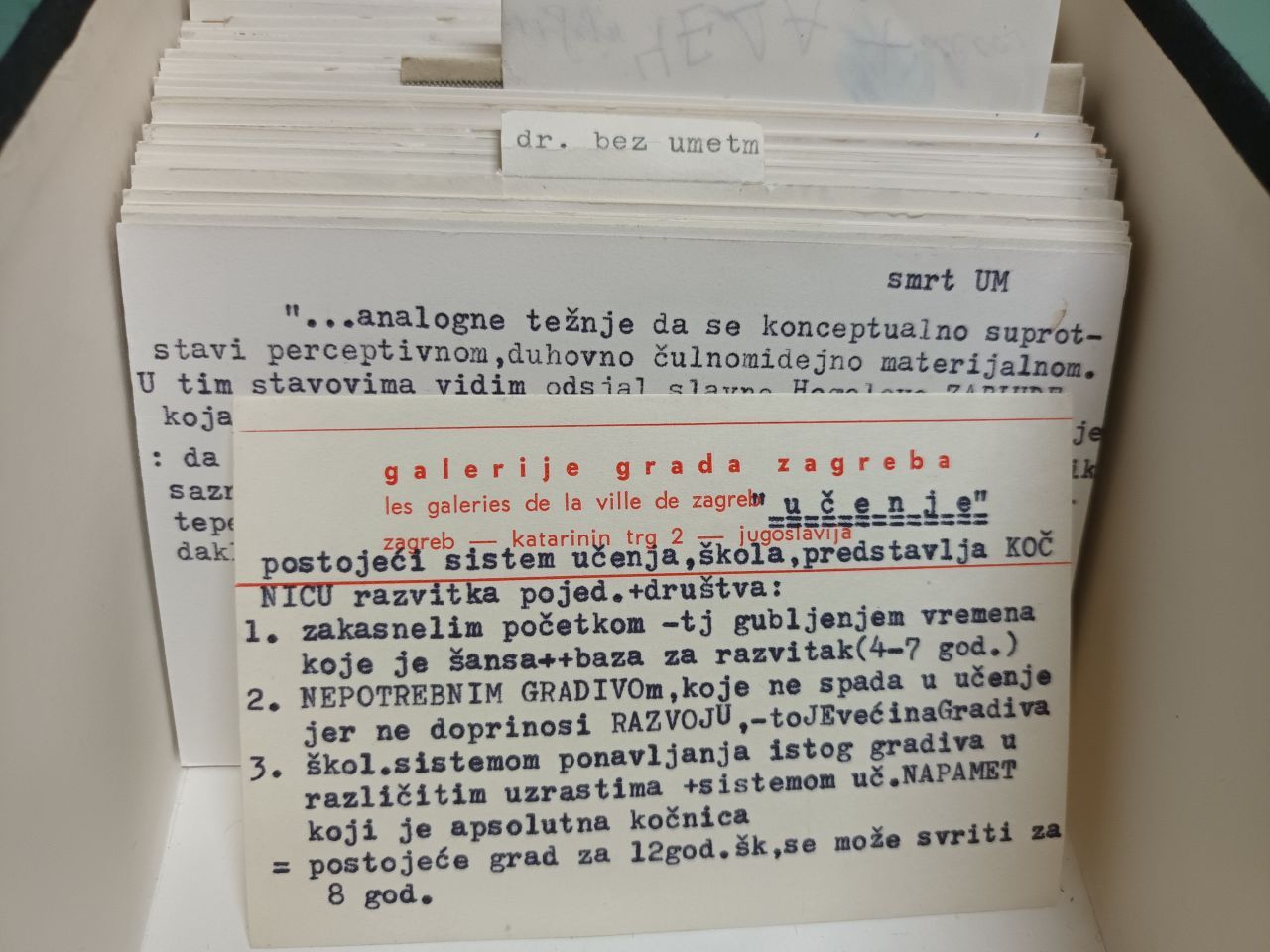Leonida Kovač: Rethinking Comradeship from Feminist Position
24 May 2024
18:15
MSU, Gorgona Hall
With regard to the aim of this pilot programme that seeks “to co-learn how to resist and transform the alliance of neo-liberal and neo-fascist forces in today’s world”, I will focus on the issues of epistemology and language. It is evident that feminist epistemologies that undermine hegemonic discourses inseparable from the neo-liberal paradigm are the main target of the extreme right movements, namely the “anti-gender ideology” movement. A syntagm “gender ideology” that demonizes feminist deconstructions of gender, was coined to blur and reinforce the lethal agency of the most persistent ideology – the patriarchal ideology that relies on the construction of sexual difference and petrification of gender binary system. This paper is concerned with the imperceptible patriarchal structural violence which has been discursively normalized and which is often manifested through discourses on art. On the other hand, it will focus on contemporary art practices which generate feminist decolonial epistemologies.
Leonida Kovač is an art historian and theorist, curator and the full professor at the University of Zagreb, Academy of Fine Arts. The main fields of her interests are contemporary art, feminist theories and critical theories. Since 1990s in her curatorial practice and accompanying theoretical writings she paid special attention to presentation of works by women artists, to mention here Dorothy Cross, Rita Duffy, Katarzyna Kozyra, Orshi Drozdik, Nan Hoover, Duba Sambolec, Edita Schubert, Nasta Rojc, Ana Opalić, Yael Toren. She has published ten books among which are Dis-enactments (2023), Anonimalia: Normative Discourses and Self-representation of 20th Century Women Artists (2010); Tübingen’s Box: Essays on Visual Culture and Biopolitics (2013); In the Mirror of the Cultural Screen: Jagoda Kaloper (2013); Mrđan Bajić: Disenacting Transversals (2016) and numerous academic articles. She was curator of the Croatian Pavilion at Sao Paulo Biennale in 2002, and at Venice Biennale in 2003. From 2002 to 2005 she was the elected Vice-president of the International Association of Art Critics – AICA. She has organized and co-organized several international academic conferences, the most recent is Memory, Word and Image: W.G.Sebald's Artistic Legacy (University of Amsterdam, 2019).
Ovidiu Tichindeleanu: Re-Orientation: Looking Back at the Future
26 May 2024
18:30
MSU, Gorgona Hall
As the world is going through the period of turbulence which is characteristic for systemic crises, the question arises again about the self-reliant resources for the re-orientation of sensibilities and for strengthening solidarities across differences. Semi-peripheries are absorbing the shocks of systemic changes and are faced at all levels, political, socio-economical and cultural, with pressures that could determine whether they will “make it” into the select club of the privileged, or else will fall into the rat race, becoming the next site of shock and destruction.
In my presentation I will look first at the internal differences distinguishable in the history of the comradeship between socialist Romania and Yugoslavia, both in the official policies of global socialism, as well as in the evolving relationship between two leading men with very different masculinities, Ceauşescu and Tito. Secondly, I will present a synthetic view of the internal differences and contradictions emerged in the process of creating common sensibilities and reasoning with the Global South and with the Western world in the culture industry of socialist Romania, from the decade of decolonization to the austere 1980s. I argue that rethinking the legacy of this dynamic past from the experience of the transition to capitalism, caught as we are in the blockage of its current culmination, opens paths for re-orientation that could make possible to reclaim another relation to culture, to delink from the production of endlessly hierarchical chains of derivatives, and to engage again in the creation of value-forms.
Ovidiu Ţichindeleanu is a Romanian philosopher, translator, educator and culture theorist, writing on critical social theory, decolonial thought, international politics, the history of senses and the cultural history of socialism and post-socialism. Editor of IDEA arts + society and member of The Experimental Station for Research on Art and Life, Romania.
Tomaž Mastnak: Postsocialism
28 May 2024
18:30
MG auditorium
In this talk I will make a claim that postsocialism represents the defeat of socialism by liberalism. Instead of defining postsocialism by what it is not, that is, by the absence of socialism, I will define it by what it is: the liberal autocracy and its main traits.
Tomaž Mastnak is Emeritus Director of Research in the Institute of Philosophy, Research Centre of the Slovene Academy of Sciences and Arts. His field of research is political theory and history of social and political thought.

